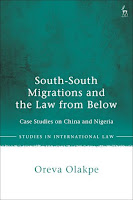A call for papers has been issued for a conference stream on "Archiving atrocities, archiving international justice," which will be part of the 2023 Law Literature and Humanities Association of Australasia Conference, December 11-14, in Brisbane, at the Queensland University of Technology. Here's the call:
New technologies in warfare are met by new technologies in recording atrocities. As a result, a new kind of atrocity archive is created where analogue records of atrocity are joined by digital and open source records. These atrocity archives are found at international courts, human rights commissions and where digital records such as satellite imagery and social media data are used to evidence international crimes and human rights violations. They can also be found at older truth commissions and the legacy institutions for former international(ised) tribunals where analogue archives are digitised for the purpose of preservation and dissemination. We welcome papers that examine forms of archiving or archives in the context of international conflict or international justice. Submit abstracts for papers via this link by 4 September. Please also notify one of the stream convenors via email (Maria Elander: m.elander@latrobe.edu.au; and Valeria Vázquez Guevara: vvg1@hku.hk). More information about the conference can be found here.
 The latest issue of the Chinese Journal of International Law (Vol. 22, no. 1, March 2023) is out. Contents include:
The latest issue of the Chinese Journal of International Law (Vol. 22, no. 1, March 2023) is out. Contents include:













